The field labs
Better fruit and
The lab for the agricultural sector - Innovation
Into the future, with know-how and high tech
Field labs reflect
the agricultural
sector of
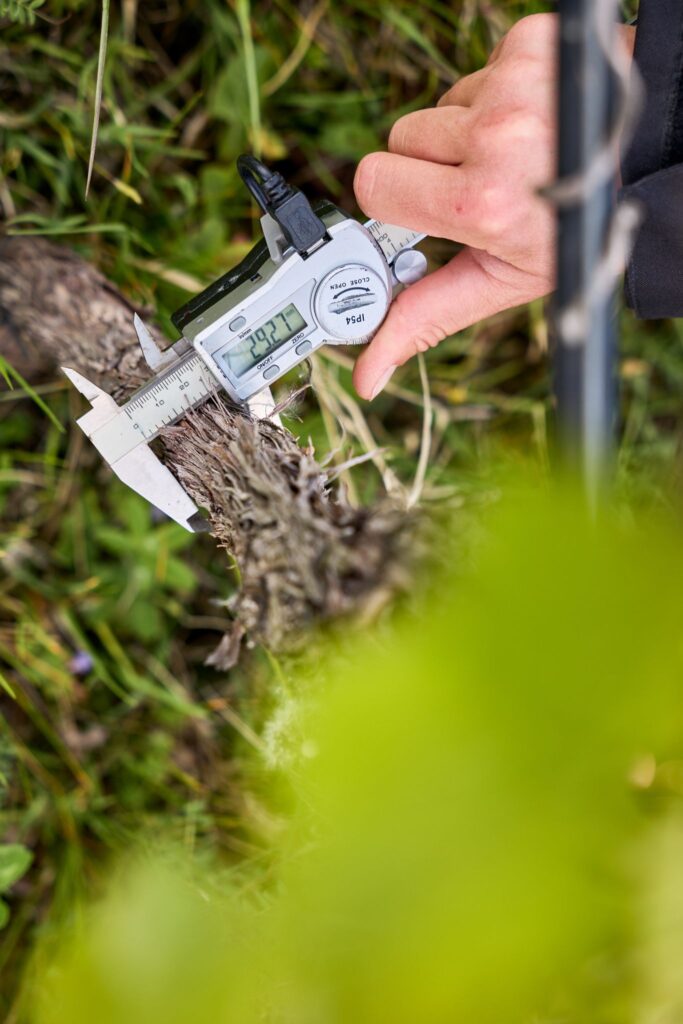
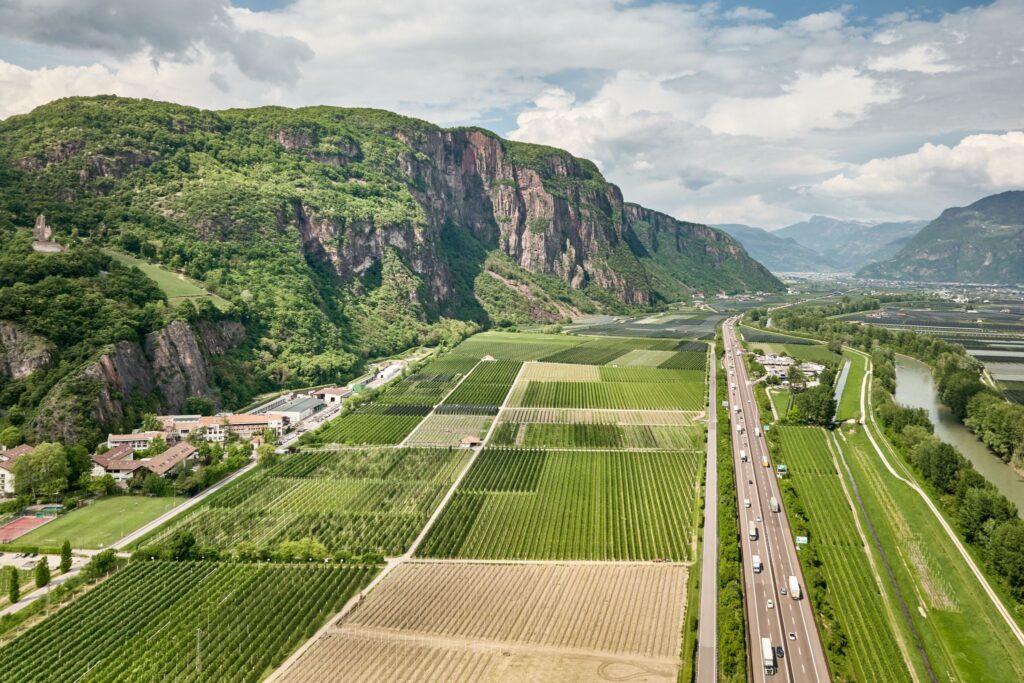
Both plots were connected with fiber optical lines and supplied with electricity. The equipment’s energy supply and rapid data transmission are thus assured. Furthermore, there is a container building with a workplace located right in each parcel. The equipment can be controlled and monitored from this container. The data coming from the various different sensors are transmitted to a single, common database, thus permitting complex processes to be better understood. Via mobile devices, the data can be accessed and evaluated anywhere. The stations are equipped with a microcomputer, allowing the most-varied of cultivation measures at the locations (e.g., irrigation, the application of fertilisers or plant protection products) to be controlled remotely with the fixed spraying system.
of outdoor
laboratory
surface area
of outdoor
laboratory
surface area
linear
metres
of onsite
office space
compensation
area
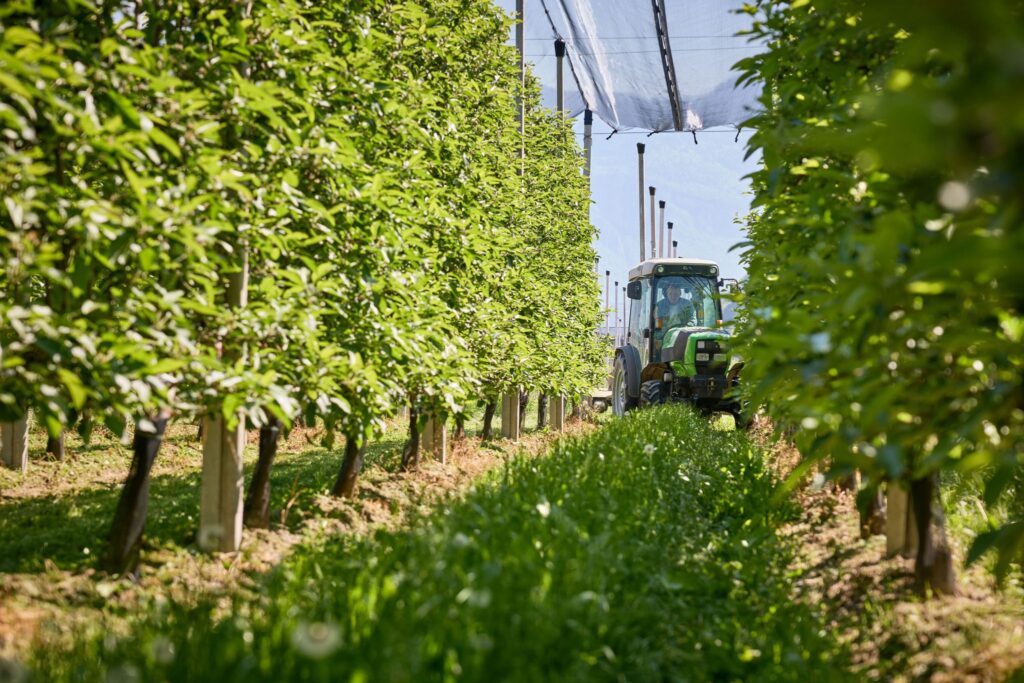
Fixed
spraying system
Fixed spraying system technology is a means of applying plant protectants employing stationary mounted nozzles to spray the given substance in the orchard or vineyard. Especially in steep locations, this enhances work safety and protects workers from the sprays. It is also possible to carry out spraying at any desired time; each treatment can be carried out faster, thus significantly enhancing effectiveness. Back in 2013, Laimburg Research Centre had already launched a five-year feasibility study which yielded positive results: throughout the course of the study, adequate plant protection was achieved, comparable to results obtained by conventional spraying with respect to both biological effectiveness and possible drift and residues.
Demand-based
irrigation
Due to climate change, precipitation patterns are changing and because of this we are experiencing anomalous precipitation events as well as drought. As a consequence, the management of water as a limited natural resource is increasing in importance.
The adjustment of irrigation to meet the effective requirements of trees and grapevines is still in its childhood. In recent years, various different technical approaches have been developed permitting a significantly more-efficient utilization of the resource “water” in fruit orchards and vineyards. These include determining the availability of water in the soil using the appropriate sensors and the transmission of the corresponding measurement values for remote analysis. By the same token, it is now possible to remotely issue commands or employ intelligent applications to influence irrigation cycles. Using tensiometers and moisture sensors in the soil, the water content can be measured and irrigation automatically activated via magnetic valves. Laimburg Research Centre already began ten years ago with the development and testing of different methods to determine the plants’ current water requirements.
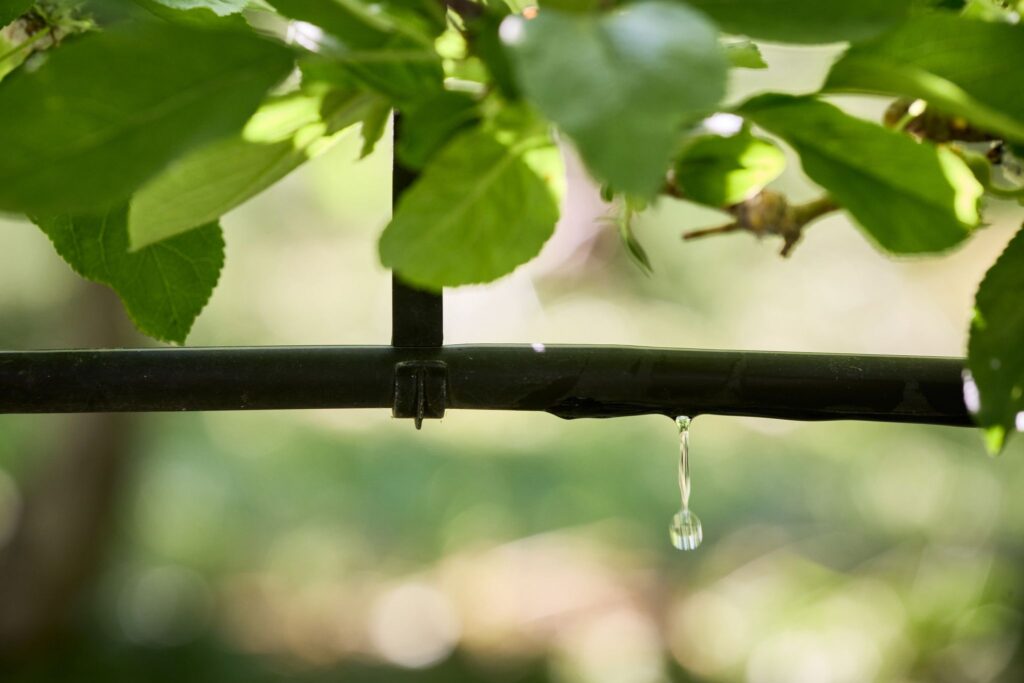
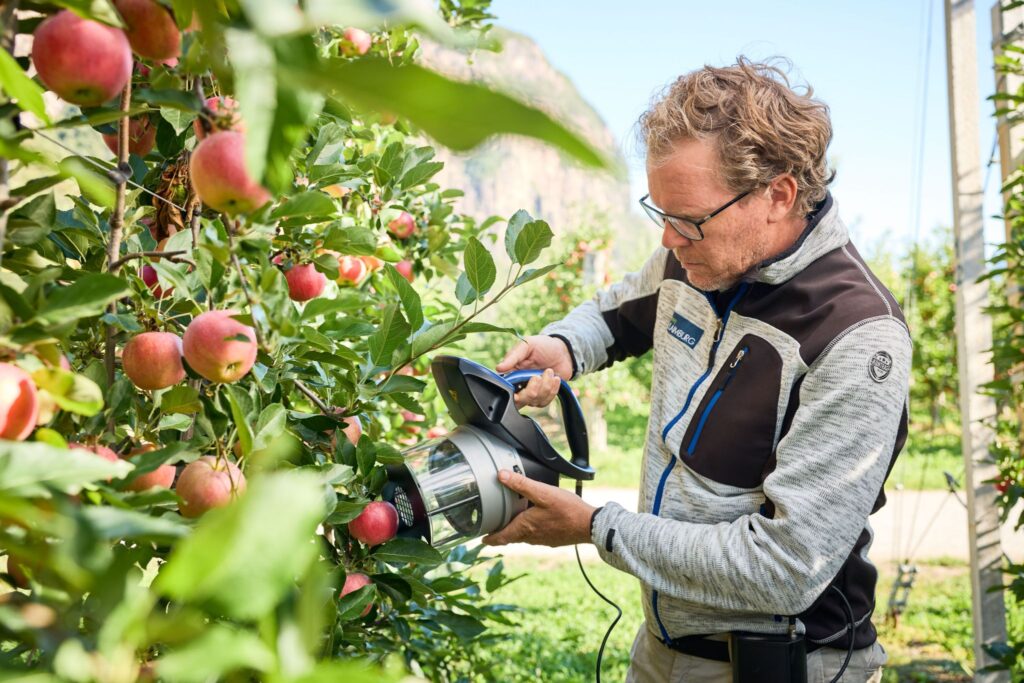
The field lab
for apple cultivation
The field lab for apple cultivation has an area of 0.65 ha and was established on flat land. In order to carry out a validation for as long as possible, in the spring of 2022, the entire parcel was planted with the late-ripening variety Rosy Glow Pink Lady®. For this purpose, double axis trees were trained to a modern robot-ready multi-axis system. Plant protection products will be applied using stationary application equipment. To do this, linear “flippers” were installed above the tree crowns. These innovative pulsating sprinklers feature a low flow rate which helps to reduce drift and run-off of the spraying liquid. The spraying liquid is mixed in a tank equipped with a mixer mechanism positioned in the middle of the orchard. Thanks to the defined application time, only a predetermined quantity of plant protectant is applied. After the application, a cleaning mechanism clears the lines with clean water and empties them, if needed, by means of an air compressor. All of these processes are controlled via a central system. Additionally, the orchard is equipped with a drip irrigation system which also permits direct-injection fertigation.
The Guyot training system
Total netting
Water-conserving frost protection
The field lab
for wine-growing
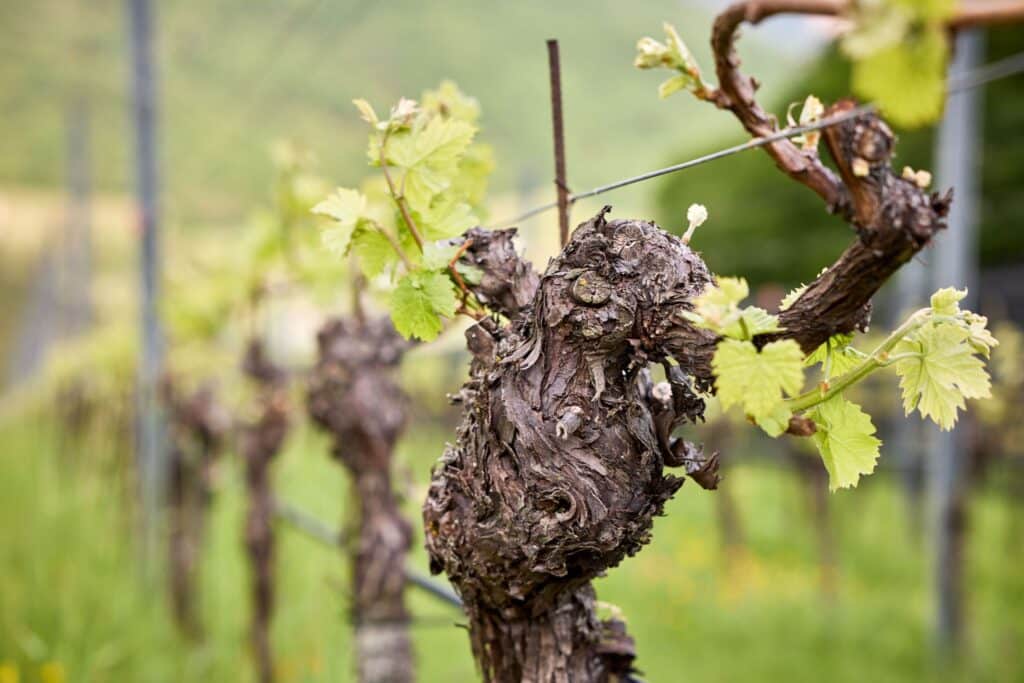
The field lab for wine-growing reflects the conditions in South Tyrol
BIG DATA
Fixed spraying system